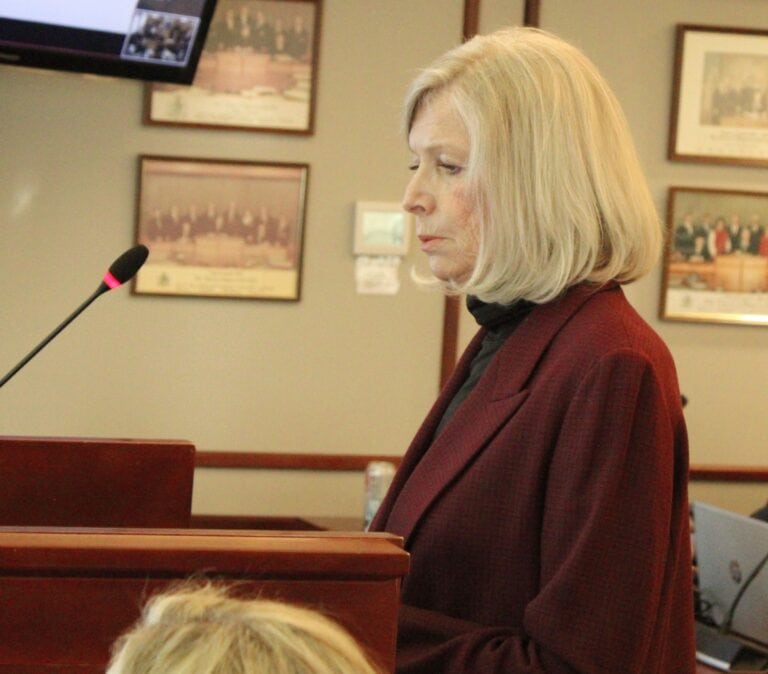The idea of even considering implementing a living wage of $18.90 for municipal employees proved divisive for Niagara-on-the-Lake councillors, though a plan to look into the proposal narrowly passed.
A motion presented last week by Coun. Norm Arsenault sought to have the town look into committing to pay all of its employees a living wage as calculated by the Ontario Living Wage Network. It's estimated the plan would affect fewer than two dozen town workers.
Arsenault said the minimum wage is too low. He acknowledged the Ford government's plan to boost it to $15 per hour in January but insisted that is still below where it needs to be.
Approving the living wage concept would be an opportunity for the town to demonstrate leadership to the rest of the community, he said.
Couns. Clare Cameron, Gary Burroughs and Wendy Cheropita voted against the proposal, but it passed with Lord Mayor Betty Disero and Couns. Allan Bisback, Sandra O’Connor and Arsenault all in favour. Couns. Erwin Wiens and John Wiens were not in attendance.
Town staff were directed to bring a report back to council in February or March of next year on the impact of implementing a living wage at the town.
Cameron said paying $18.90 an hour would cause the municipality to compete with businesses in town that are struggling to find labour.
“I feel uncomfortable with the thought that we might might jump ahead and somehow also be competing with local businesses for potential talent,” she told council.
“I think it’s our job to try and get out of the way.”
Cameron said the town could show leadership by asking local businesses how it could support them in paying a living wage while rejecting the idea of the town paying a living wage itself.
Treasurer Kyle Freeborn noted the vast majority of town employees and contractors already make more than $18.90. He said there were probably 15 to 20 employees who make less than that.
Cameron said the idea that paying people better wages to attract more labour was too simple a solution to a complex problem.
“I wish that it was easy enough to fix the labour market and to fix people's economic struggles by simply bumping up wages. I do not believe that the solution to those issues is that simple,” she said.
While wages are an important factor for people in where and how they work, having room for advancement and a good team dynamic are equally important, she said.
“So, I find this an overly simplistic attempt. Very well-intentioned, but it’s too simple.”
Cameron was also concerned that the idea of a “living wage” was too undefined. She said it could increase exponentially based on factors out of the town’s control and the town could be forced to pay if it signs on to the Living Wage Network.
The estimated cost for increasing all employees' pay to the living wage was cited as upward of $36,000 per year. Arsenault noted the figure in relation to the town's $14 million operating budget.
Cameron emphasized that this price tag was nearly identical to the town’s discretionary grants for community organizations and didn’t want the living wage to interfere with its ability to support local organizations.
Disero supported the motion and used an example from her time as a Toronto city councillor to explain why.
She said Toronto once declared it would require anyone doing business with the city pay a “fair wage” to their employees.
“All of those people against it said, ‘Oh no, the world is going to come to an end. People aren’t going to be able to bid on things.’ And that didn’t happen. It was a different time, I realize, but that just didn’t happen.”
Disero stressed that the motion only asked for a staff report on the impact of the policy and was not a motion to implement it.
Cheropita cited an example from earlier this year for rejecting the idea.
She said she was trying to find someone to be an event manager for the summer and was offering $20 per hour.
“I could not find anybody to work for $20 an hour because students were sitting at home and collecting (Canada Emergency Response Benefits),” she said.
“So, it’s not always about a motivation for money and I really did try very, very hard.”
Cheropita said if there were any full-time staff who weren’t making $18.90 then she would have supported the motion.
“But, when it’s students, most students live at home, at least in this area, and the sort of money that we’re paying, I understand it to be between $14.75 and $17 an hour. That’s a pretty good part-time job for the summer and most kids are really happy to work for that,” she said.
Burroughs argued there should be a difference between a living wage for a full-time worker and what a student or part-time worker makes.
Craig Pickthorne, who spoke to council on behalf of the Living Wage Network, said it would be difficult for the organization to determine different wages based on whether someone lived with their parents or on their own.
He said calculating the wage on the cost of living in an area was the proper solution, adding that, for students, tuition is a big cost and can rival the cost of living independently.
“First of all, your example of how expensive it is to go to university — it’s not that expensive relative to the cost of putting on a university,” Burroughs responded which prompted a look of bewilderment from O’Connor.
It makes no difference if they are “a student living at home looking down the barrel of a $30,000 student debt or they have a family of four supporting two small children. If you need the work done, then you should pay a living wage,” Pickthorne responded.
He said only 18 per cent of minimum wage earners are students or people under 20.
He pointed to Gales Gas Bar as a Niagara and NOTL business that is part of the Living Wage Network and noted it is one of the group's “champion” businesses.
Bisback supported the motion and cited some personal research as to why.
“There’s a lot of complaints about restaurants specifically not getting staffed,” he said.
“And what I found out was that most restaurants (in Toronto) that made the decision during the pandemic to pay over and above the minimum wage had no issue getting staff.”
Bisback brought up the cost of living versus the minimum wage.
“Unfortunately, people need to take two, three, four jobs just to pay the bills and I think this is a move in the right direction and I think it sets leadership,” he said.











